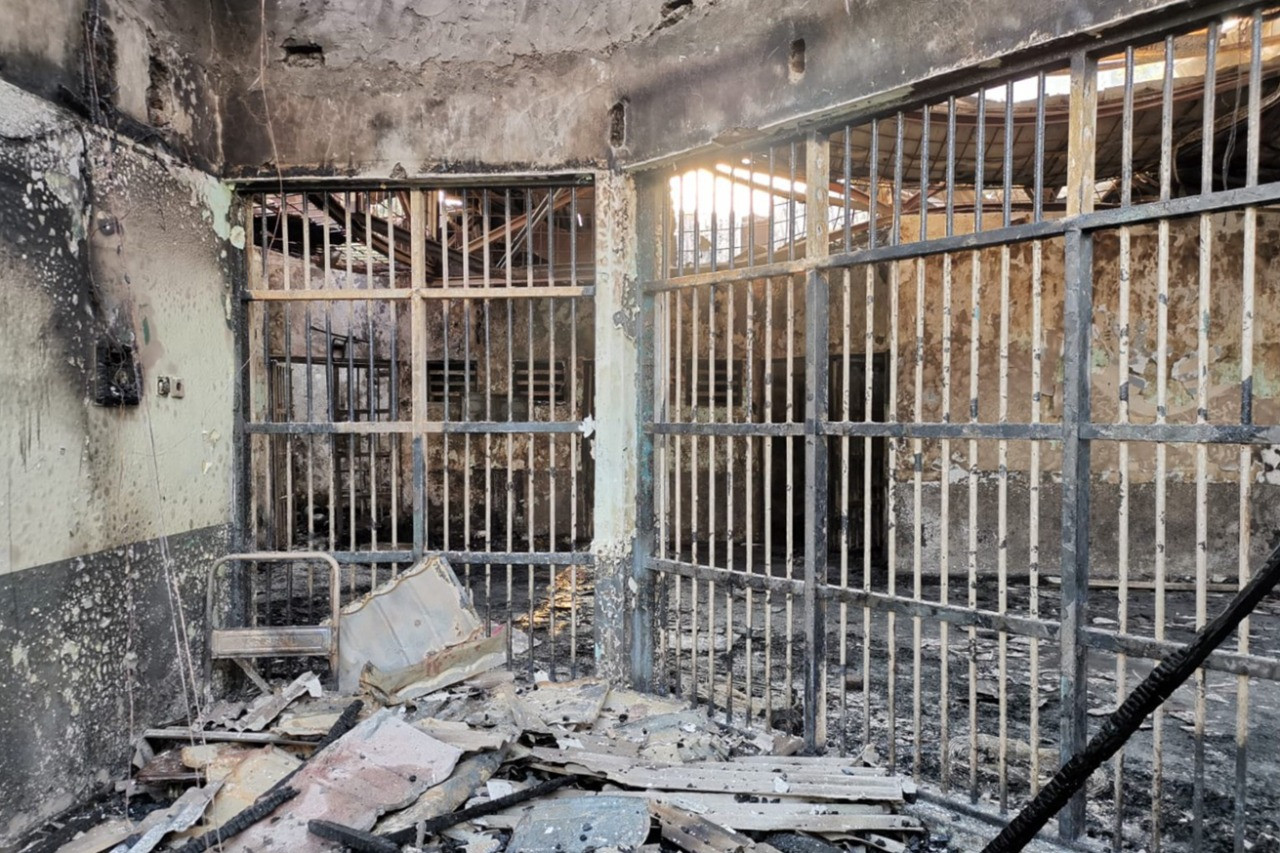Popular Reads
Top Results
Can't find what you're looking for?
View all search resultsPopular Reads
Top Results
Can't find what you're looking for?
View all search resultsActivists unconvinced new law can reduce prison overcrowding
Change text size
Gift Premium Articles
to Anyone
L
awmakers recently passed a new law on the country's correctional system with the hopes of ending prison overcrowding. Activists, however, remain unconvinced, saying the legislation does not solve the underlying problem of the excessive incarceration of drug offenders, who have long dominated the inmate population.
The House of Representatives amended the outdated 1995 Correctional Facitilies Law in a plenary session on Thursday to help address the poor management of prisons and their insufficient facilities and human resources.
Adies Kadir, deputy chairman of the House Commission III overseeing legal affairs, said the newly passed law could reduce prison capacity by about 30 percent by making it easier for inmates to get parole.
“There will be a parole monitoring period to assess whether [the inmate] could reoffend or not; that's the duty of the prison," Adies said as reported by kompas.id.
The revision does not distinguish between the eligibility for parole and sentence remissions of offenders of extraordinary crimes like corruption, drug crimes and terrorism, and those of other crimes. This automatically removes the stringent requirements for inmates convicted of extraordinary crimes, including one that requires them to help law enforcement officers close their cases.
The concept has long been rejected by anticorruption activists who argue that reducing prison overcrowding is not as simple as granting early releases or remissions.
Chronic prison overcrowding, exacerbated by underfunding and understaffing, has led to numerous prison riots and escape attempts. Among the most notorious cases are the 2021 deadly fire that broke out in the Tangerang Class I Penitentiary in Banten and killed 49 inmates — mostly drug offenders — and the 2018 bloody revolt at the Kelapa Dua Mobile Brigade headquarters (Mako Brimob) detention center in Depok, West Java.
A total of 679 correctional facilities across the country hold more than 278,000 inmates, almost double the maximum capacity of around 132,00 inmates, according to Law and Human Rights Ministry data.
The situation has prompted the government to propose a revision to the 1995 law to reform its prison system.
But Institute for Criminal Justice Reform (ICJR) researcher Genoveva Alicia said the newly passed amendment was too technical and touched mostly on administrative matters. Nor did it offer significant solutions to packed prisons nationwide, she added.
She said the main cause of overcrowded prisons was the judicial system's punitive approach and the existing penal code.
Activists and experts have also attributed overcrowding to the punitive attitude of the judiciary, prosecutors and law enforcement officers, particularly regarding drug crimes.
The 2009 Narcotics Law permits judges to sentence drug users and victims of drug abuse to rehabilitation rather than imprisonment, but the option is rarely used, while the police and prosecutors often mistakenly classify drug addicts as drug dealers or traffickers.
This, according to Genoveva, was exacerbated by President Joko “Jokowi” Widodo's “war on drugs”, which was introduced in 2015.
More than 135,000 inmates are behind bars because of drug-related crimes, meaning they account for almost half of the nationwide prison population.
Community Legal Aid Institute director Muhammad Afif Abdul Qoyim urged the government to decriminalize drug use by switching to a health approach. However, he stressed it must not lead to shifting the problem of overcrowding from penitentiaries to rehabilitation facilities.
“Because not everyone who is caught needs to be rehabilitated. Some who were caught by law enforcement officers are drug addicts, but some are actually first-time drug users,” he said.
The House Commission III and the government are considering amending the 2009 Narcotics Law to accommodate medical marijuana and restorative justice for victims of drug abuse.
In a hearing with the House Commission III in May, Law and Human Rights Deputy Minister Edward “Eddy” OS Hiariej conceded that the narcotics law had been the cause of injustice because it did not clearly differentiate between drug addicts, victims of drug abuse and drug traffickers.
“The amendment will prioritize rehabilitation, which is in line with efforts to reduce prison overcrowding," he said at the time.










